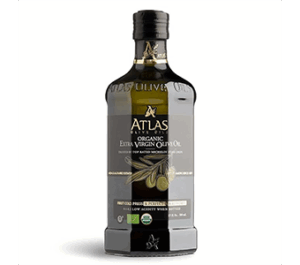The Mediterranean diet is known to many and is a top promoter of heart health due to nutrient-dense food intake, such as olive oil, fish, vegetables, and whole grains, which are anti-inflammatory in nature and protect cardiovascular health by improving cholesterol levels. The following article outlines how Mediterranean eating benefits heart health, describes the key components, and covers some practical ways to fit this lifestyle into your daily life.
The Mediterranean diet: A proven path to heart health
Get an overview here why the Mediterranean diet gets rave reviews as one of the world’s best paths to protecting your heart. The Mediterranean Diet is generally based on food patterns across the Middle East to Europe, emphasizing heart-healthy fats, lean proteins, fresh vegetables, and whole grains. Evidence from studies supports its claims of lowering cholesterol, improving blood pressure, and reducing cardiovascular diseases. Learn how this full-of-flavor-yet-sustainable approach to nutrition will improve your cardiovascular health and bring vibrant, delicious meals into everyday life.
Key takeaways
- Include sources of heart-healthy fats, like olive oil and nuts.
- Emphasizes raw, fresh foods to reduce inflammation.
- Lean protein like fish and legumes.
- Whole grains and fiber-rich vegetables that replace saturated fats maintain cholesterol and blood pressure levels.
The science behind the Mediterranean diet’s heart benefits
Uncover the research that has made the Mediterranean diet the powerhouse of heart health, as nutrient-rich foods, including olive oil, nuts, fish, and fresh produce, promote lower cholesterol, reduced inflammation, and improved cardiovascular health. Learn how science backed this delicious way of eating in the name of a stronger heart.

Reducing heart disease risk
- Evidence from research:
Several trials, such as the renowned PREDIMED trial, have established that adherence to the Mediterranean diet decreases CVD risk as much as 30%. This is associated with a balance of healthy fats, low sodium, and antioxidant foods.
Impact on cholesterol and blood pressure
- Olive oil and nuts improve HDL (“good cholesterol”) levels while lowering LDL (“bad cholesterol”).
- Potassium-rich foods, such as bananas and leafy greens, stabilize blood pressure naturally.
Anti-inflammatory properties
- Chronic inflammation contributes to atherosclerosis, a leading cause of heart disease. Polyphenols in olive oil and antioxidants in fruits combat inflammation, protecting blood vessels.
Key components of the Mediterranean diet for a healthy heart
Emphasizing healthy fats
- Sources:
- Olive oil: The cornerstone of Mediterranean cuisine, providing monounsaturated fats that reduce arterial stiffness.
- Fatty fish: Salmon, mackerel, and sardines deliver omega-3s, essential for heart rhythm regulation.
- Nuts and seeds: Packed with unsaturated fats and plant sterols that lower cholesterol.
- Benefits:
- Lower triglyceride levels.
- Reduced risk of arrhythmias.
Prioritizing whole foods
- Vegetables: Tomatoes, zucchini, and spinach offer fiber and nutrients like potassium and magnesium, essential for heart function.
- Fruits: Oranges, berries, and pomegranates are rich in vitamin C and polyphenols, boosting cardiovascular health.
Whole grains and legumes
- Quinoa, barley, lentils, and chickpeas are staples, providing slow-digesting carbs that prevent blood sugar spikes and reduce LDL cholesterol.
Practical tips to adopt the Mediterranean diet for heart health
Shopping list essentials
- Healthy fats: Olive oil, avocado, nuts, seeds.
- Proteins: Fresh fish, Greek yogurt, lentils.
- Produce: Tomatoes, spinach, citrus fruits, berries.
- Whole grains: Brown rice, farro, oats.
- Herbs and spices: Basil, oregano, turmeric.
Simple Meal Plan Ideas
- Monday: Grilled salmon with roasted asparagus and quinoa.
- Tuesday: Chickpea and vegetable stew with whole-grain bread.
- Wednesday: Greek salad with feta and olive oil drizzle.
Tips for busy lifestyles:
- Do prepare lentil soups or grain salads in bulk for the week.
- Stock your pantry with staples like canned chickpeas and whole grains.
- Instead, use olive oil instead of butter and fresh herbs in lieu of processed seasonings.
Heart-healthy recipes to get you started
Get ready to embark on a heart-healthy culinary journey with these delectable Mediterranean-inspired recipes using olive oil, fresh vegetables, lean proteins, and whole grains. Healthy dishes rich in nutrients prepared with so much ease.

One-pan Mediterranean baked fish
- Ingredients: White fish fillet, cherry tomatoes, olives, garlic, olive oil, oregano.
- Directions: Bake everything together at 375°F for 25 minutes. Serve with steamed greens.
Mediterranean lentil salad
- Ingredients: Cooked lentils, diced cucumbers, cherry tomatoes, parsley, olive oil, lemon juice.
- Directions: Mix all ingredients and serve chilled as a side or main dish.
Extending the Mediterranean diet to your lifestyle
Learn to live the Mediterranean diet-from meal planning to mindful eating. This approach goes beyond food to balance and health-oriented lifestyle choices for enduring wellness and energy.
Beyond food: The Mediterranean way of living
- Also, enjoy meals with family and friends to reduce stress and improve well-being.
- Increase moderate daily exercise, such as walking or biking.
- Limit ultra-processed foods and added sugars.
Benefits beyond the heart
- Reduces risk of overweight/obesity by promoting satiety
- Reduces risk of type 2 diabetes and certain cancers
- Promotes healthy cognitive function and longevity.
Conclusion
The Mediterranean is not a diet; it’s a lifestyle that protects your heart and boosts health in general. Lively meals, freshness of ingredients, and balance in lifestyles easily help one to adapt to and maintain this type of eating pattern. Take small steps in substituting the processed with whole and follow the Mediterranean approach toward benefits for the heart and quality of life improvement.














Amazing Diet for heart.